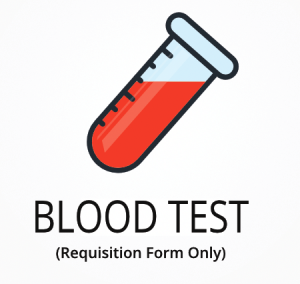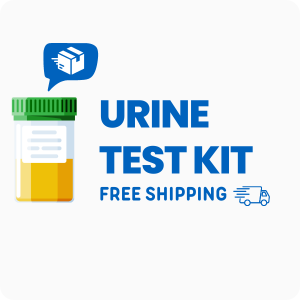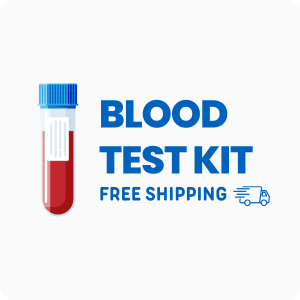Ordering the Erythrocyte Sedimentation Rate (ESR) Blood Test

Have you ever wondered about the significance of the ESR, or Sed Rate, blood test? The Erythrocyte Sedimentation Rate (using the Westergren method) test is a simple yet revealing blood test that measures the rate at which red blood cells settle at the bottom of a test tube. This rate can indicate the presence of inflammation in your body, making it a valuable tool in both traditional medicine and functional medicine.
Is ESR Test the Same as the SED Rate Blood Test?
Yes. The SED rate test stands for “sedimentation rate” and is often used as an alternative saying to ESR.
Why is the ESR Test Important?
In medicine, the ESR test is often used to detect and monitor inflammation in the body. It’s an important part of understanding inflammation in the body. In functional medicine, it goes a step further, helping identify early signs of this inflammation and monitoring the effectiveness of anti-inflammatory nutritional treatments.
Understanding your ESR levels is crucial for knowing and maintaining healthy inflammation levels since high levels of inflammation can be detrimental.
Reasons to Consider Ordering the Sed Rate Blood Test
If you’re experiencing symptoms like fatigue, unexplained weight loss, or headaches, an ESR blood test can help you understand your level of inflammation. It’s a simple yet effective way to gain inflammation insights, especially if you’re concerned about immune system disorders like autoimmunity.
Another inflammation lab test to consider ordering is the C-reactive protein (CRP) test. Alone with the ESR test, CRP is released by the liver when your body is in a state of inflammation.
Labs Included in Your Order
| Test Name | Reference Range | Description | Low and High Levels of ESR |
|---|---|---|---|
| Erythrocyte Sedimentation Rate (ESR) by Westergren |
|
A test measuring the rate at which red blood cells settle in a period of one hour. | High: High levels of ESR indicate inflammation, or possible infection.
Low: Low levels of ESR are less common and not usually clinically significant. |
According to PubMed, “The Erythrocyte Sedimentation Rate (ESR) test, a simple yet powerful tool, plays a crucial role in the detection and monitoring of inflammation, guiding both diagnosis and treatment strategies in clinical practice.”
Erythrocyte Sedimentation Rate (ESR) FAQ
What is the ESR Test for?
The ESR test measures how quickly red blood cells settle at the bottom of a test tube. It helps detect inflammation in the body, which can be a sign of various medical conditions.
What Causes High and Low ESR Levels?
High ESR levels can indicate inflammation, or infections. Low ESR levels are less common and usually not clinically significant.
What are the Signs and Symptoms of High ESR?
High ESR levels don't cause symptoms directly but may indicate underlying conditions like infections, chronic diseases, or immune disorders, which have their own symptoms.
How Often Should I Retest?
The frequency of retesting depends on your medical condition and should be determined by your healthcare provider. That said, for monitoring conditions like rheumatoid arthritis or any other inflammatory condition, it's often recommended to test every 4 to 6 weeks. For more immediate reactions like infections, ESR is generally tested every one to two weeks.
How Accurate is the ESR Test?
The ESR test is a reliable indicator of inflammation but should be interpreted in conjunction with other tests and clinical assessments.
Are Test Results Private and Confidential?
Test results are provided only to you securely through your TrueHealthLabs.com results tab under "My Account." It is your responsibility to share any test results with your treating physician.
To learn more, see our comprehensive guide to the SED Rate Blood Test.
Medical Review Board
Reviewed by Jeff Donohue M.D. from Body Logic and Brady Hurst DC, CCCN. Written by True Health Lab’s team of editorial health contributors.
Disclaimer: This information is for educational purposes only and not intended as medical advice. Consult your healthcare provider for personalized guidance.
Why Customers Trust True Health Labs – What People are saying
Also rated 4.6 out of 5 based on 3452 ShopperApproved reviews- See all TrueHealthLabs.com reviews.









